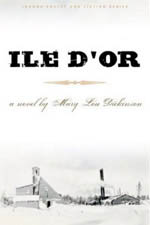
The following is a book published recently by my friend, Nicole Gombay. You may purchase it through the publisher or order it at your favourite bookstore.
Gombay, Nicole. Making a Living: Place, Food, and Economy in an Inuit Community. Saskatoon, Purich Publishing Ltd., Dec. 15, 2010.
www.purichpublishing.com
Although food is vital to our daily lives, we tend to be unaware of the particulars of where it came from and how it was produced. We simply go to the market and buy what we need in neatly packaged containers. But what was required to get that food there in the first place? In some societies obtaining food is not merely a matter of going to market. Instead it involves the active participation of community members in its harvesting, distributing, and sharing so that ideally no one goes without. Such is the case of many Indigenous communities, including Puvirnituq, the Inuit settlement in Northern Quebec that is the setting for this book.
Until recently, most residents of this Arctic village made their living off the land. Successful hunting, fishing, trapping and gathering, so vital to people's survival, were underpinned by the expectation that food should be shared. As the Inuit were in some cases drawn and in others forced to move into settlements, they have had to confront how to accommodate their belief in sharing to the demands of a market economy. Rooted in phenomenological engagements with place, and using the commoditization of country foods harvested from the local environment as a vehicle, the author documents the experiences of an Inuit community as it strives to retain the values rooted in life on the land while adjusting to the realities of life in settlements.
In this thoughtful and well-researched book, the author documents her experiences and personal reactions while living in Puvirnituq. Quoting local residents and drawing upon academic literature, she explores how some Inuit are experiencing the inclusion of the market into their economy of sharing. While the subject of the study is the Inuit community of Puvirnituq, the issues the author addresses are equally applicable to many Indigenous communities as they wrestle with how to incorporate the workings of a monetized economy into their own notions of how to operate as a society. In the process, they are forging new ways of making a living even as they endeavor to maintain long-standing practices. This book will be of interest to anyone concerned with the struggles of maintaining local values in the face of market forces.
Educated in Canada, Nicole Gombay teaches Geography at the University of Canterbury in New Zealand.
$33.00, 232 pages, 2 maps, 17 photos, index, bibliography, paper, 6 x 9, winter 2010 ISBN 978-1895830-590






































